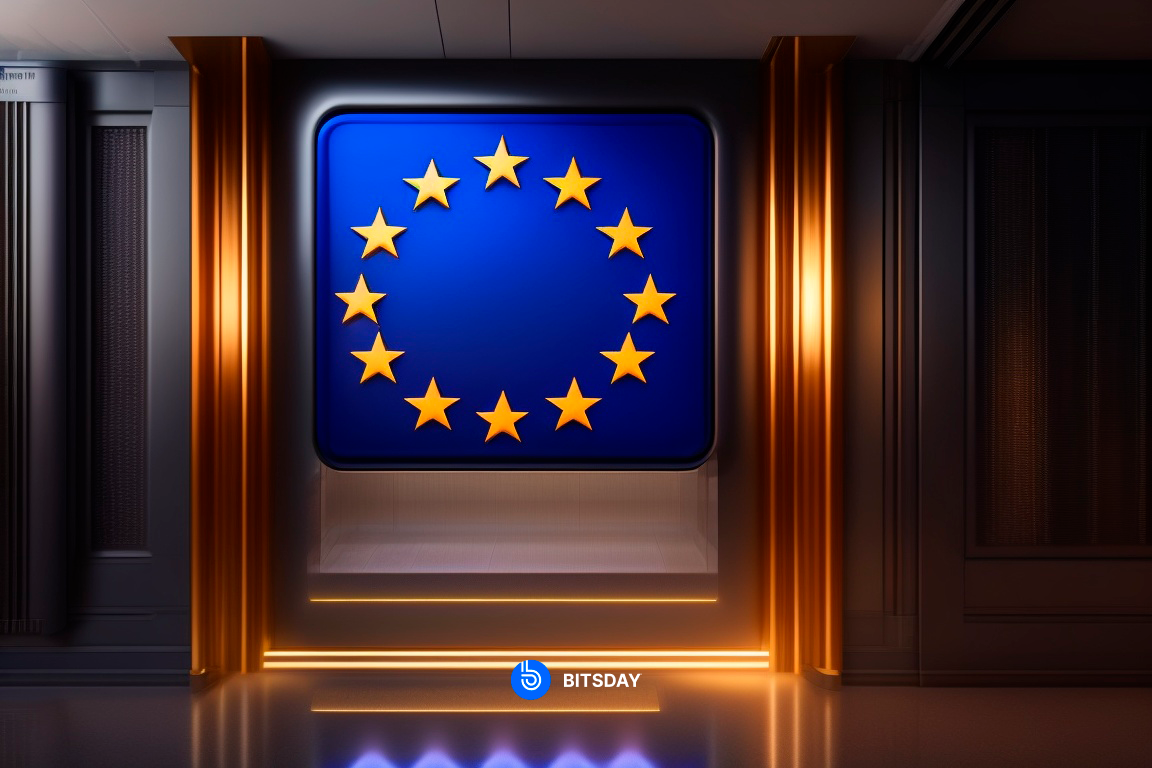- Home
- Cryptocurrency
- Navigating Uncertainty: EU Data Act Sparks Debate Over Crypto's Future
Navigating Uncertainty: EU Data Act Sparks Debate Over Crypto's Future

In a pivotal development that has sent ripples through the cryptocurrency realm, the recent consensus reached by the European Council and Parliament on the EU Data Act has thrust potential challenges and contemplations surrounding the future of crypto in the European Union into the spotlight.
On June 28, an accord was struck between the European Council and Parliament, propelling legislation regarding non-personal data into the limelight. This landmark Act, designed to extend the reach of the 2020 Data Governance Act born from the European Strategy for Data, now stands on the precipice of enforcement, awaiting endorsement from the European Parliament and Council, collectively representing the 27 member nations of the EU.
For the cryptocurrency domain, the imminent enactment of the Data Act carries profound implications. Central to the discourse is the introduction of a formidable "kill switch" mechanism, engineered to halt or suspend automated data-sharing arrangements in the face of security breaches.
Yet, the core contention lies in the ambiguity enveloping the definition of smart contracts, exacerbated by the Act's all-encompassing categorization. This comprehensive approach fails to distinguish between conventional digital contracts and those built upon distributed ledger technology (DLT), thus sowing seeds of uncertainty in its practical application.
Marina Markežič, an advocate within the European Crypto Initiative, has pointedly emphasized the Act's glaring lack of precision pertaining to the criteria for activating the "kill switch." The innate immutability of blockchain technology makes the implementation of such a feature a daunting prospect. The Act's nebulous stance on the constituents of a "data-sharing agreement" further adds to the labyrinthine of uncertainties.
Another deal! ????????
— Thierry Breton (@ThierryBreton) June 27, 2023
⁰Tonight’s agreement on the #DataAct is a milestone in reshaping the digital space.
Thanks to the swift work of the EP @delcastillop & the ???????? Council Presidency, we are on the way of a thriving ???????? data economy that is innovative & open — on our conditions. pic.twitter.com/vTWUU8xTx9
Intriguingly, the reach of the Act isn't confined solely to the realm of traditional cryptocurrencies—it casts a shadow over the burgeoning landscape of decentralized finance (defi) as well. With the European Union currently lacking well-defined regulations for defi, the implications of the Act within this space remain enigmatic and open to interpretation.
Erwin Voloder, an affiliate of the European Blockchain Association, has highlighted the potential obstacles ahead, especially in the scenario where public networks fall within the Act's purview. Such an inclusion could reverberate through the veins of business operations within the EU, invoking substantial repercussions.
Notably, globally recognized crypto entities, including prominent names such as Polygon and Stellar, have vocalized their reservations, underscoring the urgency for clearer delineations within the Act's framework. A broader anxiety stems from the potential interplay between the Data Act and the impending MiCA regulation, slated for enactment in 2024.
As the EU Data Act stands poised to reshape the contours of the cryptocurrency landscape within the European Union, it is evident that the present configuration necessitates a concerted effort to clarify the regulatory backdrop of crypto. Amidst the uncertainty that the Act's current iteration evokes, one resounding truth emerges: the need for a harmonious dialogue and collaboration between industry stakeholders and European regulators has never been more pressing.

Trending



Press Releases

Deep Dives







